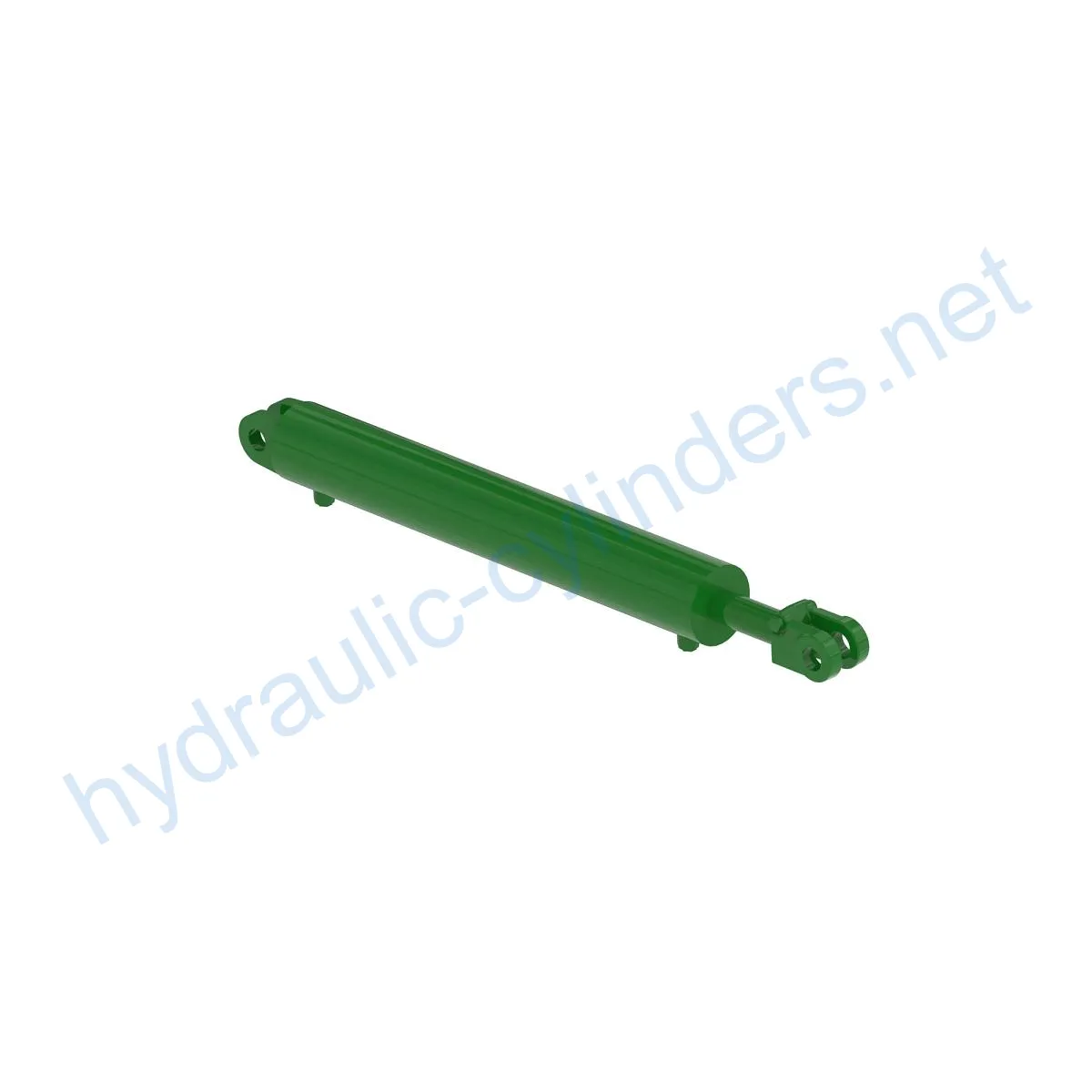Replacement Of AHC16478 Hydraulic Cylinder
Являясь одним из производителей, поставщиков и экспортеров механической продукции, мы предлагаем гидравлические цилиндры и многие другие изделия.
Пожалуйста, свяжитесь с нами для получения подробной информации.
Почта:sales@hydraulic-cylinders.net
Производитель поставщик экспортер гидроцилиндров.
Replacement Of AHC16478 Hydraulic Cylinder
Introduction:
The Replacement of AHC16478 Hydraulic Cylinder is a crucial component used in various industrial applications. This hydraulic cylinder serves as a replacement for damaged or worn-out cylinders, ensuring the proper functioning of equipment in different settings.
Specifications and Model:
Specifications:
- Weight: 68 lb
- Height: 4.5 in
- Width: 5.5 in
- Length: 42.5 in
Model: 2730
Key Features:
-
Improved Equipment Performance
Replacing damaged or worn-out hydraulic cylinders can restore the normal operational capability of equipment, ensuring optimal performance in various applications.
-
Enhanced Safety
Regularly replacing hydraulic cylinders reduces the safety hazards caused by cylinder failure, ensuring the well-being of operators and equipment.
-
Overload Protection
New cylinder designs often incorporate better overload protection mechanisms, providing increased safety during operation.
-
Quick Installation
Modern hydraulic cylinders are designed for easy installation and replacement, minimizing downtime for equipment.
-
Standardized Components
Many hydraulic cylinders are standardized products, making it easier to obtain replacement parts in the market.
Applications:
-
Excavators
In excavators, hydraulic cylinders in the boom or bucket may become damaged due to prolonged use or overload, requiring replacement to restore proper operation.
-
Cranes
The hydraulic cylinders in crane booms are prone to wear during frequent lifting and lowering operations, necessitating regular replacement for safety assurance.
-
Tractors
The front loader hydraulic cylinders in tractors may develop leaks or decreased performance during continuous lifting and tilting operations, calling for replacement.
-
Harvesters
Hydraulic cylinders in harvesters endure high pressure during the harvesting process. Timely replacement ensures optimal working efficiency.
-
Automated Production Lines
Hydraulic cylinders are used to control robotic arms and other automated equipment. Timely replacement is necessary to maintain production efficiency.
-
Die Casting Machines
In high-pressure and high-temperature environments, hydraulic cylinders in die casting machines may experience decreased performance. Regular replacement ensures product quality.
-
Mining Equipment
Hydraulic cylinders are used for lifting and moving heavy loads in mining equipment. Regular inspection and replacement prevent equipment failures in harsh working conditions.
-
Bulldozers
Worn hydraulic cylinders on bulldozer blades can lead to decreased pushing power. Timely replacement ensures optimal efficiency during operations.
Maintenance Tasks:
Regular maintenance tasks for hydraulic cylinders include:
- Periodic inspections
- Proper lubrication
- Seal replacement
- Calibration checks
It is crucial to emphasize the importance of correct installation, lubrication, and adjustment. Providing proper guidance for aligning the cylinder during installation and recommending the use of suitable mounting brackets to secure the cylinder are essential. Additionally, suggesting inspection, repair, and replacement procedures, offering replacement parts and rebuilding services, and providing tips to extend the lifespan of the hydraulic cylinder are essential maintenance practices.
Safety Considerations and Environmental Factors:
When using hydraulic cylinders, it is vital to prioritize safety measures. Employing appropriate safety precautions while handling and utilizing hydraulic cylinders ensures the well-being of operators and prevents accidents or injuries. Environmental factors should also be considered when choosing hydraulic cylinders to ensure compatibility with specific working conditions. This includes selecting suitable materials and seals that can withstand wear, optimizing cylinder surface treatments for improved durability, and regular lubrication to enhance performance.
Troubleshooting and Common Issues:
When troubleshooting hydraulic cylinder-related issues, the following points should be taken into account:
-
Leakage
Common causes of hydraulic cylinder leakage include worn seals, damaged piston rods, or cylinder misalignment. Inspecting and replacing damaged components can resolve these issues.
-
Slow Cylinder Movement
Slow cylinder movement may result from insufficient hydraulic fluid, restricted flow, or internal damage. Checking fluid levels, clearing any obstructions, or consulting a professional can help diagnose and solve the problem.
-
Uneven Cylinder Movement
If a hydraulic cylinder exhibits uneven movement, it might be due to uneven pressure or misalignment. Ensuring proper pressure regulation and aligning the cylinder correctly can rectify this issue.
-
Excessive Noise or Vibration
Noise or vibration can be caused by loose connections, worn components, or internal damage. Tightening connections, replacing worn parts, or seeking expert assistance can address this problem.
-
Overheating
Overheating can occur due to excessive pressure, insufficient lubrication, or excessive friction. Identifying and resolving the underlying cause, such as adjusting pressure settings, improving lubrication, or replacing damaged parts, can prevent overheating.
Providing troubleshooting tips and solutions aids readers in effectively diagnosing and resolving hydraulic cylinder issues. Additionally, suggesting preventive measures can help minimize potential problems.

Design Considerations and Selection Criteria:
In terms of design considerations, the following factors are essential for hydraulic cylinders:
-
Load-Bearing Capacity
Hydraulic cylinders must be designed to withstand the specific loads they will encounter to ensure reliable performance.
-
Sealing Efficiency
Seals such as piston seals and rod seals should be carefully selected to ensure effective sealing and prevent leakage.
-
Durability
Hydraulic cylinders should be constructed using durable materials and undergo surface treatments to withstand wear and minimize maintenance requirements.
Take a Tour of Our VR Factory:
Take a tour of our VR factory with the following
Hydraulic Cylinder Application:


